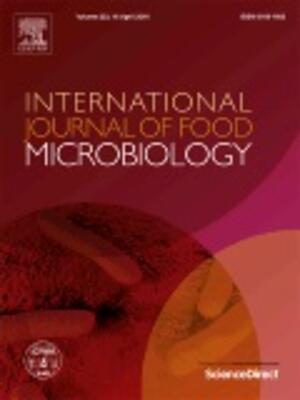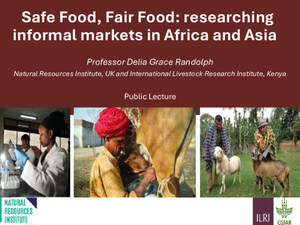
Animal source food beliefs, perceptions, and dietary intake among mothers and children in Kenya informal settlements
Abstract
Objectives: To explore how beliefs and perceptions about animal-source foods (ASFs) influence mother and child dietary intake in Nairobi, Kenya.
Methods: Cross-sectional surveys assessed ASF beliefs and perceptions in informal settlements from 7 wards with high ASF activity in Nairobi, Kenya in Sept-Oct 2019. A random sample of 304 low-income mothers with children 6-59 months reported how much ASFs they and their child should consume per week and likelihood of getting sick or fat from ASFs. ASF intakes were collected with 24-hour recalls. Open-ended responses on sickness causes and mitigation were thematically analyzed. Logistic regressions assessed associations between ASF beliefs and perceptions with intake, stratified by 6-23 24-59 child mo of age, gender, and maternal primary education.
Results: Most mothers (88%) and children (91%) consumed ASF, mainly milk (81%, 88%). Mothers believed they should consume one more egg than children, but similar amounts of meat, fish, and milk. Belief in higher milk and meat intake increased odds of intake in girls (OR: 1.51 [95% CI: 1.21,1.88]; 1.32 [1.003,1.74]) and older children (1.28 [1.05,1.58]; 1.30 [1.01,1.66]). Mothers perceived eggs, meat, and poultry led to weight gain (69%, 58%, 58%) and sickness (39%, 49%, 32%). Perceived weight gain from eggs reduced odds of intake in mothers older (0.97 [0.95,0.99]) and less educated (0.96 [0.94,0.99]). Sickness concerns from lack of processing raw milk (65%), overprocessing packaged milk (24%), animal health in poultry, organs, and red meat production (25%, 14%, 14%), and overconsuming eggs (45%). Mothers (77-97%) mitigated concerns by boiling milk, properly cooking poultry and organs, and reducing red meat and egg intake. General mitigation included trusted sources; proper hygiene, handling, preparation; and fresh consumption. Perceived sickness from eggs increased odds of any ASF intake in girls (1.02 [1.001,1.05]), while sickness from raw milk reduced odds of any ASF intake in younger children (0.96 [0.93,0.99]). All other associations were insignificant.
Conclusions: ASF beliefs and perceptions influence diets, particularly for older girls and older, less educated mothers. Individual-level mitigation addressed food safety concerns along the supply chain.
Citation
Boncyk, M., Hunter, E.N., Blake, C.E., Prieto-Merino, D., Lepine, A., Bukachi, S.A., Ngutu, M., Kadiyala, S. and Dominguez-Salas, P. 2024. Animal source food beliefs, perceptions, and dietary intake among mothers and children in Kenya informal settlements. Current Developments in Nutrition 8(Supplement 2): 102833.









